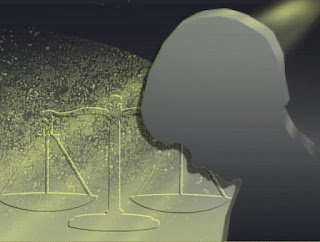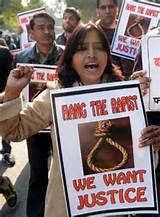Introduction
Last year, there was a large drama being enacted in the streets
of New Delhi when the Nirbhaya juvenile convict was allowed to go free. The
last minute representations in the apex court did not have any effect. At that
time, many saw the last-ditch effort of the National Commission of Woman (NCW)
to reason with the bench of the apex court to extent the police or judicial
detention, citing the threat to the society, did not yield results. Citing the absence
of laws to deal with juvenile doing heinous crimes, the apex court bench
ordered the release of the Nirbhaya convict.
Whom should we blame? As many would agree, the irresponsible and
insensitive lawmakers are to be blamed. Again, the apex court has reminded the
Executive of the state the need of a law to handle juveniles doing the heinous
crimes. On January 11, 2016, the honourable Supreme Court has asked the central
government to come up with a separate law to treat juvenile convicts.

Need for Separate Law to Try Juvenile Convicts
Hearing public interest litigation against the release of juvenile Nirbhaya convict after three years of simple detention at the Juvenile Correction Home, a bench of Supreme Court led by Justice Dipak Mishra asked the centre again to come up with a separate law to try heinous crimes involving juveniles in our country. While entertaining the issue during a hearing, Justice Mishra sought to differentiate between minors and the children below the age of 10 and asked the central government to define the word ‘child’ in terms of heinous crimes such as rape. He further added that even judges are human beings and understand the pain and distress caused to a child who is getting sexually abused. He was appalled at the emergence of news items involving rape in our country wherein even the infants as young as 28-day-old are not spared. He termed the rape of infants who don’t know anything about sex and rape as brutal perversion. Therefore, he asked the central government to come up with a separate legislation to combat this menace that is sweeping the society at the earliest. He suggested that the relevant sections of Indian Penal Code (IPC) could be amended for this purpose.
Current Law on Sexual Abuse
At present, there is a section in the IPC that talks of age of a woman. The section 376 (i) of the IPC considers the women below the age of 16 as minor girls. This section has no separate provision for girl children below the age of 10 years. It also grossly neglects the plight of infants. Moreover, the definition of a minor is grossly inadequate, giving amble space for people to manoeuvre and distort the law for their own benefits. This is the reason why Justice Dipak Mishra has asked the lawmakers to come up with a law that is devoid of all the loopholes.
At present, there is a section in the IPC that talks of age of a woman. The section 376 (i) of the IPC considers the women below the age of 16 as minor girls. This section has no separate provision for girl children below the age of 10 years. It also grossly neglects the plight of infants. Moreover, the definition of a minor is grossly inadequate, giving amble space for people to manoeuvre and distort the law for their own benefits. This is the reason why Justice Dipak Mishra has asked the lawmakers to come up with a law that is devoid of all the loopholes.
Way Forward
Citing the shortcomings in the definition as given in the IPC, the bench of
apex court led by Justice Dipak Mishra asked the central government to come out
with a separate legislation to deal with crimes involving minors on children as
young as 28 days. Justice Mishra asked the Attorney General who represents the
Indian government to ask the lawmakers to draft stringent laws to dissuade the
minors from doing heinous crimes. Replying to the observation, Attorney General
Mukul Rohatgi told the apex court bench that the child rape can never be
tolerated and agreed with its observation to tell the government to draft
appropriate legislation. The Executive
has to sit together and bring a suitable amendment to the relevant sections of
IPC to make a stronger legislation against child sexual abuse. The
constitutional amendment requires the support of 2/3rd majority in
both the houses of parliament. We have to wait and see how things unfold in the
coming days.








